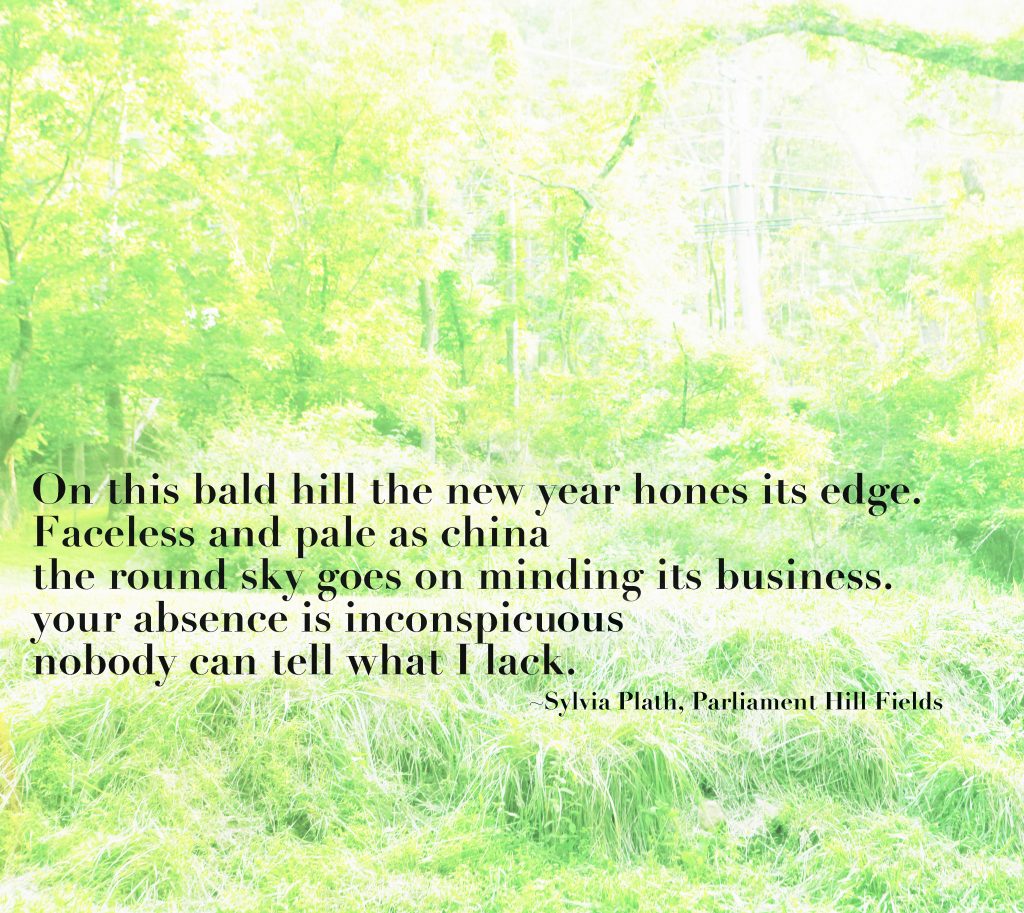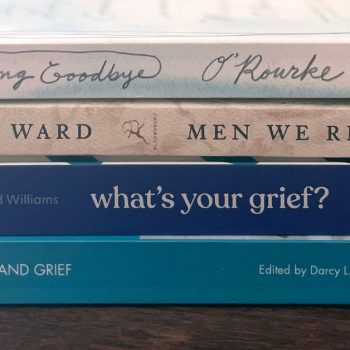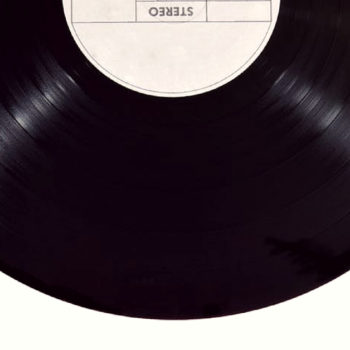Sylvia Plath's Parliament Hill Fields: A Poem About Miscarriage
/ Books, Movies, and Music : Eleanor Haley
Last night I got sucked into a Wikepedia black hole. It started harmlessly enough with a Sylvia Plath biopic and ended with me staring at the glow of my computer screen late into the night; clicking hyperlink after hyperlink about Plath's husband, her son, her daughter, her mental illness, her suicide, her son's suicide, and her writing of course... It went on for quite a long time.
Briefly, for those of you who don’t know Sylvia Plath, she was a writer of poetry, novels, and short stories. She is most famous for her poetry and her novel The Bell Jar. She died at the age of 30 by suicide after a lifelong struggle with depression.

Anyway, somewhere in my mindless clicking I happened upon a poem she wrote called Parliament Hill Fields. She is said to have written this poem about one week after suffering a miscarriage. Do you guys know this poem? I hadn't although I've been a fan of Plath's for some time.
I don't want to pretend I know what it feels like to lose a child at any stage of life, this is a pain I cannot claim to understand. However, I have known and loved many brave women who've experienced miscarriage. I've watched in astonishment as they privately bore the pain, swept up the pieces of their broken hearts, and carried on with their lives as mothers, wives, employees, etc.
I wish I was one for analyzing poetry but a lot of times I just don't get it; however, I feel this poem communicated so well the private pain of miscarriage that even my non-sophisticated brain got it. Plath lost a child most people never knew existed. She is clutching to the essence of a child she felt but was never able to hold. As she walks through Parliament Hill Fields she contemplates the child and feels the weight of the loss, but like so many other women she is forced to shift focus to her duties as a wife and mother as she draws closer to home. At least this is my interpretation, yours may be different.
I guess the wonderful thing about art is that the reader can draw a wide range of feelings, assumptions, or emotions from the work, regardless its creator's meaning. For example, I read an analysis of the poem by an author who believed when Plath stated "I am too happy" she meant she was relieved the miscarriage happened. I'm not sure if the author was privy to a factoid about Plath's life which led her to this conclusion, but my initial interpretation of the line was very different. I assumed she felt the pangs of moving on, letting go, or not feeling sad enough. Many grievers understand the guilt of allowing themselves to smile or laugh too soon after a loss or of shifting their focus from the person who has died for a milasecond.
In reading this poem, what do you relate to? What does it mean for you? Perhaps you see things a different way or perhaps your experience helps you to understand something others might not. Please share your thoughts with us in the comments below.
Parliament Hill Fields
On this bald hill the new year hones its edge.
Faceless and pale as china
The round sky goes on minding its business.
Your absence is inconspicuous;
Nobody can tell what I lack.
Gulls have threaded the river's mud bed back
To this crest of grass. Inland, they argue,
Settling and stirring like blown paper
Or the hands of an invalid. The wan
Sun manages to strike such tin glints
From the linked ponds that my eyes wince
And brim; the city melts like sugar.
A crocodile of small girls
Knotting and stopping, ill-assorted, in blue uniforms,
Opens to swallow me. I'm a stone, a stick,
One child drops a barrette of pink plastic;
None of them seem to notice.
Their shrill, gravelly gossip's funneled off.
Now silence after silence offers itself.
The wind stops my breath like a bandage.
Southward, over Kentish Town, an ashen smudge
Swaddles roof and tree.
It could be a snowfield or a cloudbank.
I suppose it's pointless to think of you at all.
Already your doll grip lets go.
The tumulus, even at noon, guards its black shadow:
You know me less constant,
Ghost of a leaf, ghost of a bird.
I circle the writhen trees. I am too happy.
These faithful dark-boughed cypresses
Brood, rooted in their heaped losses.
Your cry fades like the cry of a gnat.
I lose sight of you on your blind journey,
While the heath grass glitters and the spindling rivulets
Unspool and spend themselves. My mind runs with them,
Pooling in heel-prints, fumbling pebble and stem.
The day empties its images
Like a cup or a room. The moon's crook whitens,
Thin as the skin seaming a scar.
Now, on the nursery wall,
The blue night plants, the little pale blue hill
In your sister's birthday picture start to glow.
The orange pompons, the Egyptian papyrus
Light up. Each rabbit-eared
Blue shrub behind the glass
Exhales an indigo nimbus,
A sort of cellophane balloon.
The old dregs, the old difficulties take me to wife.
Gulls stiffen to their chill vigil in the drafty half-light;
I enter the lit house.
We want you to be a part of the conversation, otherwise we're just talking to ourselves. Be our friend and subscribe to receive posts straight to your inbox.
For more poems about grief and grieving, check out this article.
We wrote a book!
After writing online articles for What’s Your Grief
for over a decade, we finally wrote a tangible,
real-life book!
What’s Your Grief? Lists to Help you Through Any Loss is for people experiencing any type of loss. This book discusses some of the most common grief experiences and breaks down psychological concepts to help you understand your thoughts and emotions. It also shares useful coping tools, and helps the reader reflect on their unique relationship with grief and loss.
You can find What’s Your Grief? Lists to Help you Through Any Loss wherever you buy books:





Kriskat January 19, 2019 at 3:16 pm
This poem is cold and emotionless. I suffered 7 miscarriages and I felt NOTHING of what I have been through. This is the worst poem by Plath! I wrote my own one. If you read my poem, you will feel desolated and your heart will stop breathing , like my flesh died in the winter of 2001.
Michele Tarantino August 24, 2018 at 10:20 pm
I lost the only child I ever almost had. My pregnancy ended early and I was never able to get pregnant again. I am crying and so touched by the emotion that Sylvia expresses in this poem. Such beautiful imagery and she is sending her child on its way as she walks home.
Katie May 13, 2017 at 8:46 am
I love that to Sylvia grief is seen as glowing white. It is unavoidable and you can’t really see anything else in your life at that moment. The significance of the nursery room is so emotional, a normal child’s room is taken for granted when a child fills it and the emptiness is so cold. She is a true talent and really touches my heart with her overcome emotion,